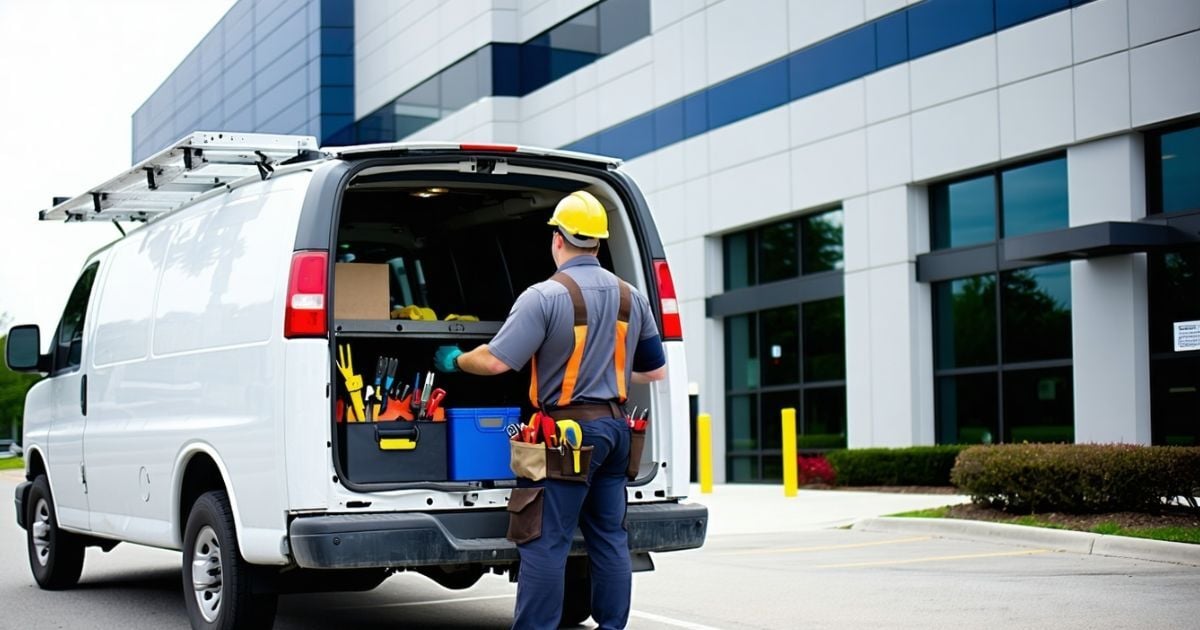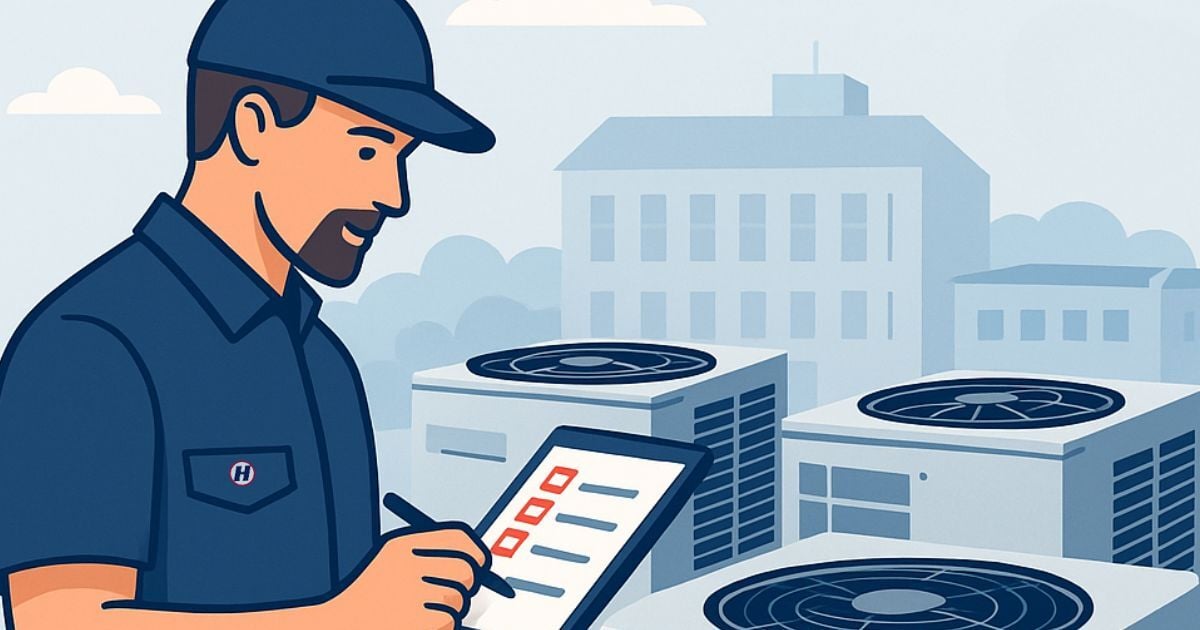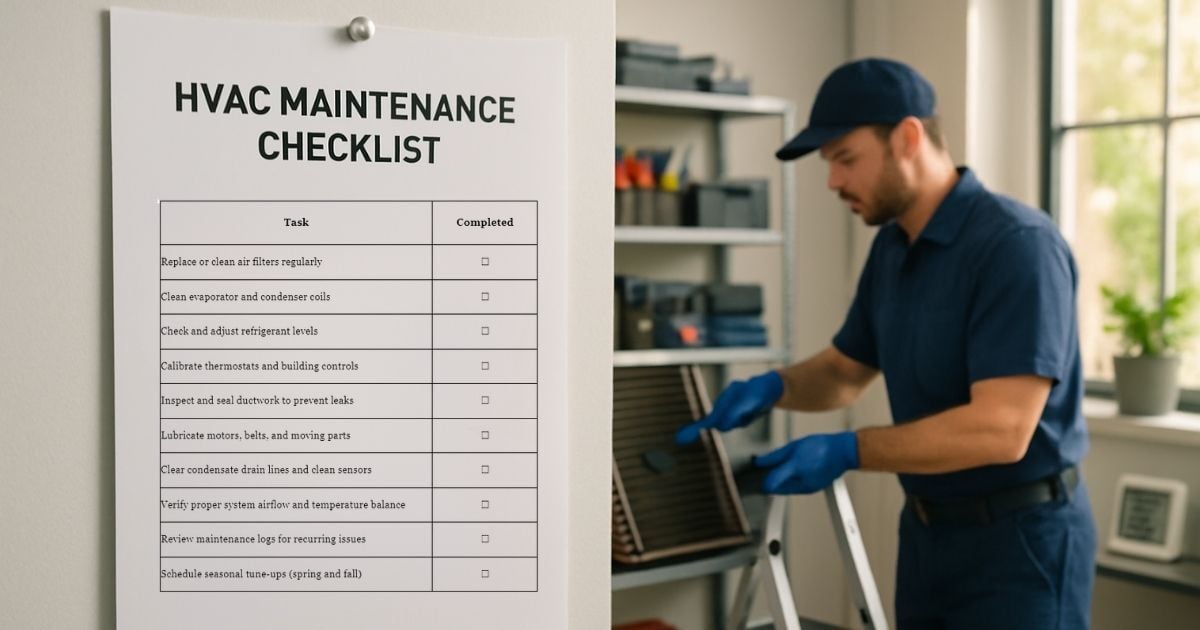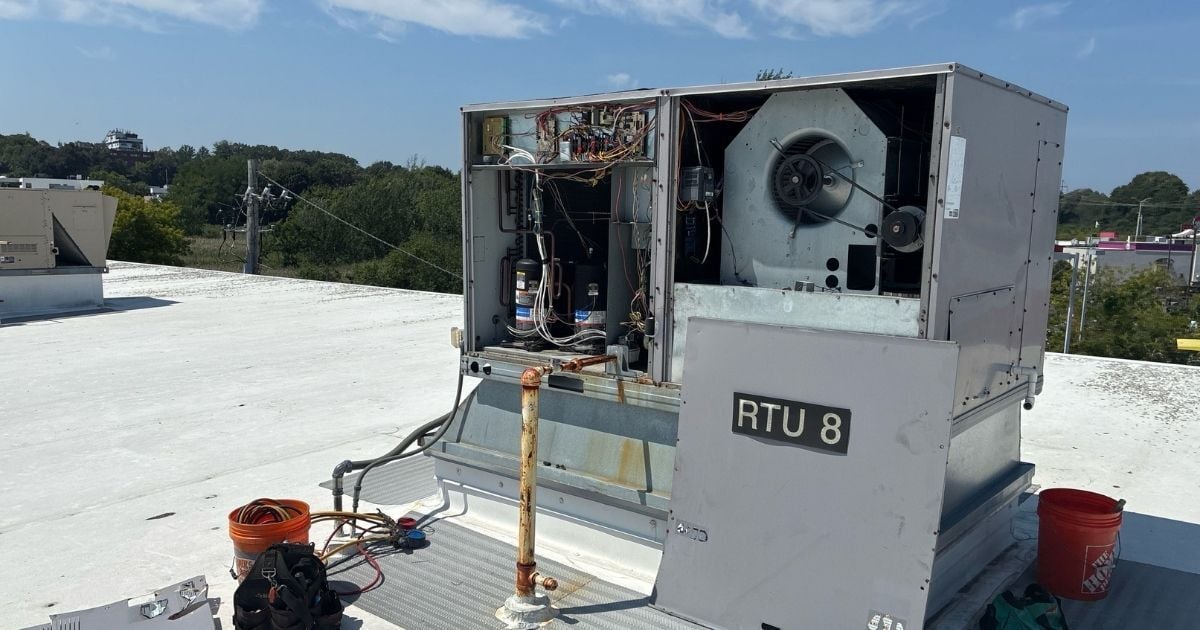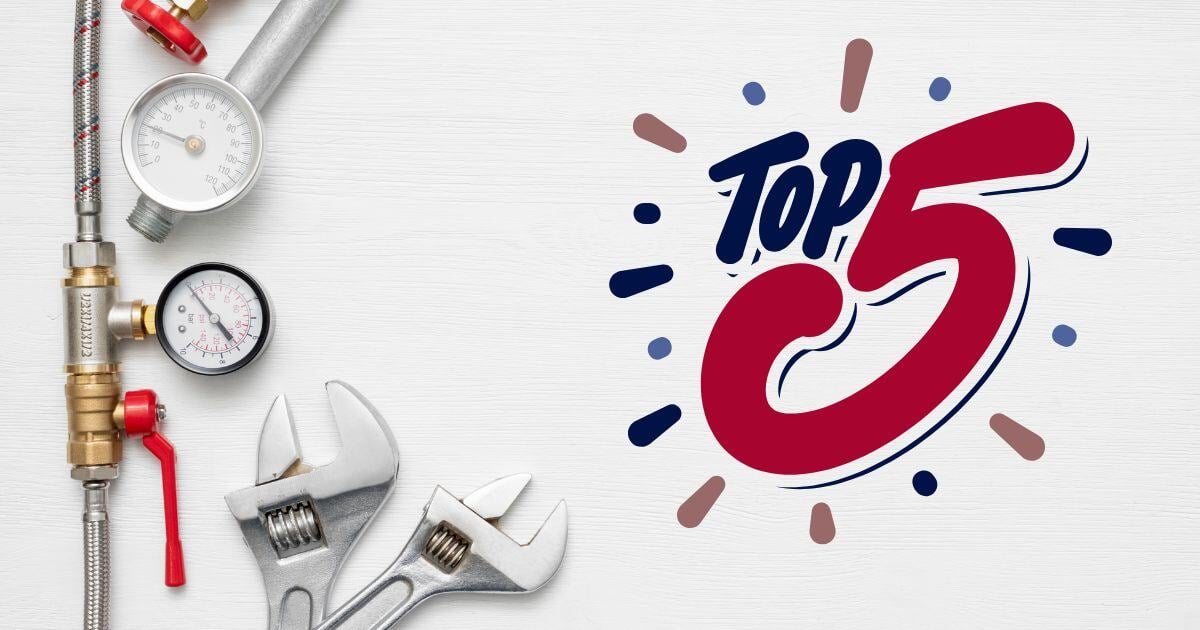
If your commercial building’s HVAC system seems to run nonstop, or your energy bills keep creeping higher, your air filters might be partly to blame. It sounds simple: filters just keep dust out, right? The truth is that dirty, cheap, or mismatched filters can quietly drain thousands of dollars in wasted energy every year.
At Harold Brothers Mechanical Contractors, we’ve inspected hundreds systems across Massachusetts where filters were the hidden culprit behind rising costs, hot and cold complaints, and even premature equipment failure.
In this article, we’ll explain why HVAC filters matter far more than most people realize, how the wrong type can choke your system’s efficiency, what proper maintenance looks like, and when it’s time to go beyond filter changes and tackle bigger air quality or ductwork issues.
Why Do Filters Have Such a Big Impact on HVAC Efficiency?
It helps to think of your HVAC filters as the lungs of your system. When they’re clean, air flows smoothly through your ducts, your equipment doesn’t have to work as hard, and energy use stays steady. But when filters clog up with dust, pollen, or construction debris, airflow drops. That reduced airflow makes your system push harder to move the same amount of conditioned air.
According to the U.S. Department of Energy, restricted airflow from dirty filters can raise your energy consumption by up to 15%. That might not sound like much until you apply it to a commercial building. If your annual utility costs are $60,000, a 15% increase means $9,000 of pure waste, all from something as small as a filter.
The harder your system works, the faster parts wear down. Fans, motors, and compressors overheat more often, leading to breakdowns and expensive repairs that could have been prevented with regular maintenance.
How Often Should You Replace Commercial HVAC Filters?
Many building owners rely on simple rules of thumb like “change filters every three months.” While that’s fine for small residential systems, it’s not enough for commercial buildings with larger air volumes and higher occupancy.
The right replacement schedule depends on your building type, air quality, and usage. For example, office buildings in downtown Boston may only need new filters quarterly, but hospitals, manufacturing spaces, and schools often need monthly replacements because of the heavier load on their systems.
Even the seasons matter. In spring and fall, pollen and dust can fill filters faster than usual. Construction nearby or high foot traffic can also add debris to the air that your filters have to catch.
The best approach is to have your HVAC technician check filters during each maintenance visit, not just on a calendar schedule. They can measure pressure drop across the filter, a quick test that shows whether airflow is being restricted, and replace filters only when needed.
Can the Wrong Filter Actually Hurt Performance?
Yes, and this is something many people don’t realize. Filters are rated by MERV (Minimum Efficiency Reporting Value), which measures how well they capture particles. The higher the MERV number, the finer the filtration.
That sounds like a good thing, but it can backfire. A filter with too high a MERV rating can restrict airflow even when it’s brand new. It’s like trying to breathe through a mask that’s too thick. Your system’s blower motor has to work harder, which increases energy use and shortens its lifespan.
On the other hand, a filter that’s too low on the MERV scale might allow dirt and dust to pass through and coat your coils. Once those coils get dirty, heat transfer drops sharply, and your system must run longer to heat or cool the building.
In most commercial settings, filters rated between MERV 8 and MERV 13 strike the right balance between capturing pollutants and maintaining good airflow. But your exact system and occupancy level will determine the best match. That’s why it’s important to let your HVAC service provider review your equipment specs before changing filter types.
What Are the Signs That Your Filters Are Causing Problems?
If you’re not sure whether filters are affecting your HVAC efficiency, start by looking for patterns.
- Are you noticing uneven temperatures across different parts of your building? That often means restricted airflow.
- Do tenants or employees complain about musty smells or poor air quality? Filters might be saturated and unable to capture more contaminants.
- Have your energy bills risen even though your usage hasn’t changed? Dirty filters could be making your system run longer cycles.
- And if you hear your HVAC unit cycling on and off more than usual, that’s another red flag. Your system may be overheating from lack of airflow.
An experienced technician can confirm this by checking filter pressure, fan amperage, and coil condition during a maintenance visit. In most cases, changing the filters and cleaning the coils restores proper performance quickly.
How Does Filter Maintenance Fit Into a Larger Energy Strategy?
Filter replacement is one of the simplest, lowest-cost steps you can take to reduce energy waste, but it’s also a great early warning system for bigger issues.
For example, if your filters clog unusually fast, you might have leaky ducts pulling in dirty air from unconditioned spaces. Or if air seems dusty even after filter changes, there may be a problem with your return air design or building envelope.
At Harold Brothers, we often see maintenance visits reveal small issues that could have become major ones later. A $50 filter change can prevent a $5,000 fan motor replacement. When paired with other energy-saving strategies like coil cleaning, duct sealing, and proper control settings, filter care becomes part of a much larger efficiency plan.
What’s the Real Takeaway on HVAC Filters and Efficiency?
Your HVAC filters may be small, but they have an outsized impact on comfort, energy use, and system life. Clean, properly rated filters let your equipment breathe freely and do its job without wasting power. Neglected or mismatched filters choke that efficiency, raising your bills and increasing wear on expensive components.
Regular filter maintenance, along with coil cleaning, duct inspections, and control checks, is one of the simplest and smartest investments you can make in your building’s performance.
At Harold Brothers Mechanical Contractors, we help building owners and facility managers across Massachusetts and Southern New Hampshire keep their HVAC systems running at peak efficiency. Whether your goal is to reduce costs, improve indoor air quality, or extend system life, our team can help you identify simple steps that make a measurable difference.
If you’re ready to start saving money on energy upgrades and maintenance, read our article on Massachusetts Commercial HVAC Incentives to learn how local programs and rebates can make your next efficiency project even more affordable.
Topics:















